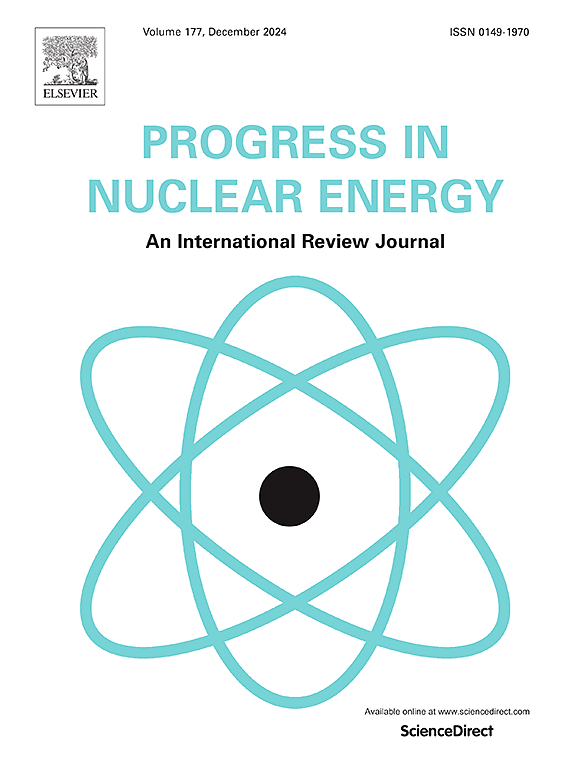Research on the impact of important parameters of component cooling system on design
IF 3.3
3区 工程技术
Q1 NUCLEAR SCIENCE & TECHNOLOGY
引用次数: 0
Abstract
There is a significant gap between the component cooling system (CCS) of the HPR1000 nuclear island cold chain system and the actual operating parameters, resulting in insufficient utilization of the cooling source and poor economic performance. Due to the high complexity of CCS design and the difficulty of design evaluation, multi-objective optimization research is necessary to identify parameters that significantly impact the design results of the CCS. To this end, this paper constructs a mathematical model and evaluation program for the CCS, utilizing an improved genetic algorithm suitable for solving constrained complex multi-objective optimization problems. The design temperature of the CCS and several large design flow rates are selected as optimization variables, while weight, volume, investment cost, and energy consumption are set as optimization objectives. The aim is to use optimization design methods to determine the impact of important parameters of the CCS on its design. The results indicate that, under the premise of ensuring the safety of nuclear power plants, the optimization algorithm can effectively identify the optimal combinations of optimization variables, leading to relative optimal solutions for the four objectives: a maximum reduction of 18.1 % in weight, 21.3 % in volume, 11.5 % in investment cost, and 28.7 % in energy consumption. Furthermore, the study finds that the design temperature of the CCS is a crucial parameter affecting its design results, and that appropriately reducing the design temperature is a key direction for optimizing the CCS design.
求助全文
约1分钟内获得全文
求助全文
来源期刊

Progress in Nuclear Energy
工程技术-核科学技术
CiteScore
5.30
自引率
14.80%
发文量
331
审稿时长
3.5 months
期刊介绍:
Progress in Nuclear Energy is an international review journal covering all aspects of nuclear science and engineering. In keeping with the maturity of nuclear power, articles on safety, siting and environmental problems are encouraged, as are those associated with economics and fuel management. However, basic physics and engineering will remain an important aspect of the editorial policy. Articles published are either of a review nature or present new material in more depth. They are aimed at researchers and technically-oriented managers working in the nuclear energy field.
Please note the following:
1) PNE seeks high quality research papers which are medium to long in length. Short research papers should be submitted to the journal Annals in Nuclear Energy.
2) PNE reserves the right to reject papers which are based solely on routine application of computer codes used to produce reactor designs or explain existing reactor phenomena. Such papers, although worthy, are best left as laboratory reports whereas Progress in Nuclear Energy seeks papers of originality, which are archival in nature, in the fields of mathematical and experimental nuclear technology, including fission, fusion (blanket physics, radiation damage), safety, materials aspects, economics, etc.
3) Review papers, which may occasionally be invited, are particularly sought by the journal in these fields.
 求助内容:
求助内容: 应助结果提醒方式:
应助结果提醒方式:


